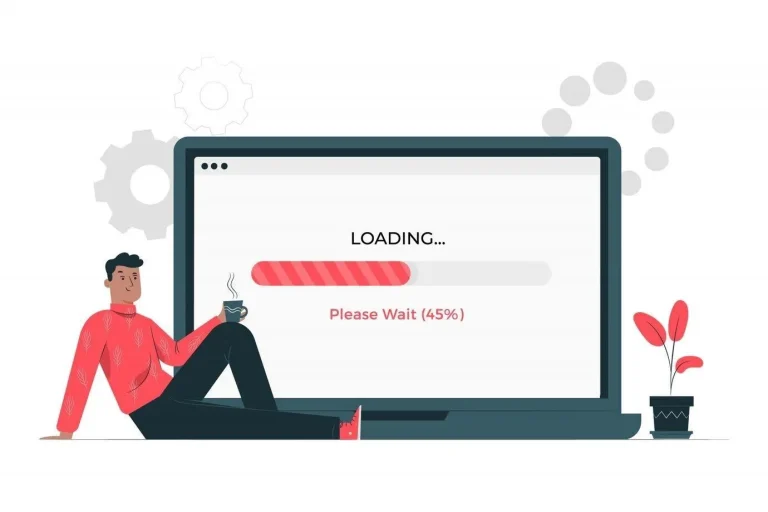For publishers who haven’t partnered with a header bidding company, knowing which provider best fits their business and on what terms can be difficult. Many header bidding companies claim to be the best in the programmatic advertising industry. How can you select the right partner before onboarding?
This article will guide you through a comprehensive evaluation process of a header bidding company so that you can determine whether it is the right fit for you. Use the checklist to find the best match for your header bidding goals. Let’s begin.
Table of Contents
Why It Is Vital to Connect With Header Bidding Provider?
I believe you are here to find out how to choose the right header bidding providers. But before knowing that, it is important to know why you need them. So, let’s see the reasons cum benefits of hiring header bidding partners here:
- While header bidding may seem like an easy solution, but its setup and optimization are complex, and you cannot do it without in-depth header bidding expertise. The partner takes the burden off of you and supports implementation with their expert ad operations team.
- The header bidding provider connects you with unique demand partners who give premium rates for your ad inventory.
- Header bidding is not set-it-and-leave-it technology, but it needs consistent auction optimization to improve revenue. The partner will do that for you with their technology support and automated tools.
- They will care about ad inventory, so they protect it from ad fraud and maintain brand safety.
- Above all, the partner helps with reporting and analytics. They help you analyze your revenue performance with an advanced dashboard. The insightful data you collect from it can be used for further optimizations.
Things to Look into a Header Bidding Provider
Pricing and payment structure
The payment structure and cycle are the first items on the list. This is because factors such as minimums, fees, and contractual commitments are crucial, and they vary from vendor to vendor. Some header bidding companies even have a lock-in period of 30 or 60 days.
Additionally, most header bidding companies operate on a revenue-share model. The company’s fee ranges from 15% to 20% of the total ad revenue earnings. It’s important not to be swayed by a vendor offering a 5% revenue cut, as the quality of their product and services will likely be poorer than a vendor offering 15%-20%.
Furthermore, the payment cycle is also a major factor that needs to be considered. A header bidding vendor may pay you on a NET30, NET60, or NET90 basis.
Questions you should ask the header bidding vendor during an evaluation:
- Apart from revenue share, does the company have any hidden charges that may be asked later to pay?
- How much will you be asked to pay for ad serving or other ad delivery-related services?
- If the header bidding company provides both – self-service and managed service, what is the fee structure for each?
Demand partners and Prebid wrapper
The more page views you have, the more important it is to get access to premium demand partners. To know about the quality of demand partners, the key indicators are bid rate, win rate, and timeout rate. While the bid rate will help to know about the ad fill rate, the timeout rate will indicate if the SSP will cause latency issues.
So, you need to check all three factors because judging an SSP purely on one factor (i.e., either on bid rate or win rate, or timeout) can be ineffective. That said, knowing about these factors in advance is impossible without implementing the demand partners on the site. Perhaps the probable win rate, bid rate, etc., can be estimated in advance.
The industry is crowded with hundreds of SSPs, and you need the best match for your audience. A big SSP will more likely bring premium and relevant advertisers for your ad inventories globally. On the other hand, a niche SSP catering to a specific audience would be irrelevant to your business.
As the demand partners (SSPs, ad exchanges, etc.) are managed and controlled by the header bidding wrapper, you should know the wrapper’s ability to add or remove demand partners without hindering the website’s functioning.
Moving forward, header bidding can be implemented on the server side as well as the client side. Most prebid providers support either of them, and some of them support both. So, ensure that the vendor knows how to implement your desired technology.
Questions you should ask the header bidding provider during an evaluation:
- How long will it take to integrate the wrapper and start header bidding?
- Do they offer self-service wrappers and fully-managed wrappers? If it is the self-service wrapper, how extensive set-up will it require?
- Has the company built the wrapper in-house or used an open-source framework such as Prebid?
Technical support and services
Header bidding technology is designed for the “always-on” environments where downtime must be avoided. This gives publishers hundreds of reasons to ask a header bidding company for different levels of support. Since a company may have self-service or managed service, it is better to understand what kind of support will be available for you.
In the case of a self-service header bidding product, some companies provide proper training and instant access to the support team to help with the technical implementation of the wrapper, adapter, or any other ad server-related factors (e.g., line items, ad units, etc.). Consequently, such companies may have a fee to give you access to support and training.
You might not require training with a managed service provider as they will implement header bidding and take care of everything. Also, enquire about the availability of support. Some companies provide support only during business hours, while some offer 24×7 support availability.
Questions you should ask the header bidding provider during an evaluation:
- In terms of support, is the company providing support via email, phone, or both?
- What is the level of technical support the company can provide you? For an ad server, will they help you in setting up ad trafficking if required?
- What is the process of onboarding and implementation of header bidding for a new publisher?
Ad inventory protection and brand safety
Nearly $100 billion will be lost to ad fraud in the digital advertising industry by 2023, according to eMarketer. If you have spent a while in the programmatic, you might know how vulnerable it is to ad fraud. And looking at the given number, no publisher shouldn’t forget to check how prone the header bidding vendor is to ad fraud.
It is said that an ideal header bidding company should take proactive measures to protect the ad inventories of publishers from the risks of ad fraud by monitoring and blocking low-quality ads from the buyers.
It would be best if you looking for a company that can help you combat ad fraud with the help of a combination of manual human checks and applying technical measures to block ad fraud on the inventories. Besides, some companies partner with third-party ad fraud detection companies to control the fraud.
With millions of traffic and brand name known to the audience, it becomes necessary to ensure that the ads shown on your web pages are deemed to be following your brand standards and aren’t inappropriate. A header bidding company’s ad ops team generally does this by:
- Whitelisting and blacklisting advertisers,
- Direct deals with premium and brand-safe advertisers, and
- Directly integrating third-party vendors.
Data privacy
We live in an era where new data privacy laws are introduced frequently. Online consumers are increasingly concerned about how their data is used and shared. Therefore, to ensure compliance with privacy laws and regulations, looking for a header bidding partner to help implement Consent Management Platforms (CMPs) on the publisher’s website is recommended.
Questions you should ask the header bidding vendor during an evaluation:
- Will they share/sell your audience data to the other vendors?
- Can they protect your ad inventories from malicious ads and ad fraud?
- If they are working with an ad verification company or not? And if yes, which company and what processes and tools are there to protect your inventories from invalid clicks and impressions?
- Do they allow blacklisting and whitelisting advertisers to sell your impressions in a brand-safe environment?
Reporting and analytics
Publishers use reporting and analytics to analyze ads on a website. Not only do they give insights into ad performance, but they also help a lot in planning, optimizing, and scaling campaigns for the future.
You need to know how ads are performing regarding eCPMs, viewability, and revenue, or what about SSPs’ win rate, bid rate, and timeout rate. To get help in these areas, you need to make sure that the header bidding company has the right analytics tools and abilities to run advanced analytics if needed for you.
A company might have its dashboard or partner with a third-party header bidding analytics provider. In both cases, what matters to you is the availability of reporting tools.
Yes, reporting accuracy. Some companies provide data in 24 hours, while others may provide it in 12 hours.
Questions you should ask the header bidding vendor during an evaluation:
- What levels of reporting will be available for you? Will you be able to see bidder performance on the dashboard?
- Will there be any delay in the time to share the latest report?
- Can you export reports in bulk and share them with your network (or team)? Is there any limit on exporting reports daily or monthly basis?
User-friendly product and workflow
It is a fact that header bidding is a complex product and requires a lot of technical implementations and understanding to run it without causing trouble. Due to the said reason, a publisher has to ensure that the header bidding company is providing user-friendly interfaces and dashboards.
Although it is less likely that you will get to know about a vendor’s products without onboarding and experimenting with them, you can ask a few essential questions, such as how they create ad tags, ad units, Prebid orders, and so on. An experienced header bidding provider must have the potential to do such basic activities quickly.
Concerning the workflow, it would be easier with a managed service provider as they handle everything from scratch. However, the workflow could be a bit difficult with self-service providers.
Questions you should ask the header bidding vendor during an evaluation:
- If it is a self-service provider, will the company help you in ad optimization via its tools and algorithms?
- If they are a managed-service provider, how will they do ad set-up, management, and optimization to increase the yield?
Additionally, check if the company has tailored the header bidding product for publishers of your size (website traffic). Check whom it is targeting – whether they are working with small publishers, mid-sized publishers, or big publishers with thousands of millions of page views a month.
To better understand the vendor, you can ask how they will start with the products on your website and continue for the next 30, 60, or 90 days.
Additional questions you should ask the header bidding vendor during an evaluation:
- How are they going to integrate the wrapper into your website?
- Are they capable of redefining and developing a new strategy for your business better than the previous partner?
- How are they going to help integrate the premium SSPs or ad exchanges? Will they allow you to change the SSPs or exchanges as you want if required?
Some header bidding companies provide add-on products to increase the yield of a publisher. So, you should look into the products outside header bidding and know how to leverage them to generate more revenue.
Wrapping Up
We believe the above-discussed points have made determining the right header bidding partner easier for you. However, publishers must emphasize that while understanding the header bidding process isn’t rocket science, it is still a complex process that may require some time and effort to grasp fully.
That being said, we encourage you to take one step at a time when evaluating potential vendors. Consider analyzing their track record, evaluating their technical capabilities, and examining the level of support they offer. Additionally, it may be helpful to identify the most important traits you need in a header bidding partner, such as their ability to deliver high-quality ads, willingness to collaborate with you on strategy, and responsiveness to feedback.
Remember, finding the right partner can be a game-changer for your business, so it’s important to take the time to do your due diligence and make an informed decision.
If you want friendly advice to find a partner who suits your requirements, Contact us; we are just one call away!























